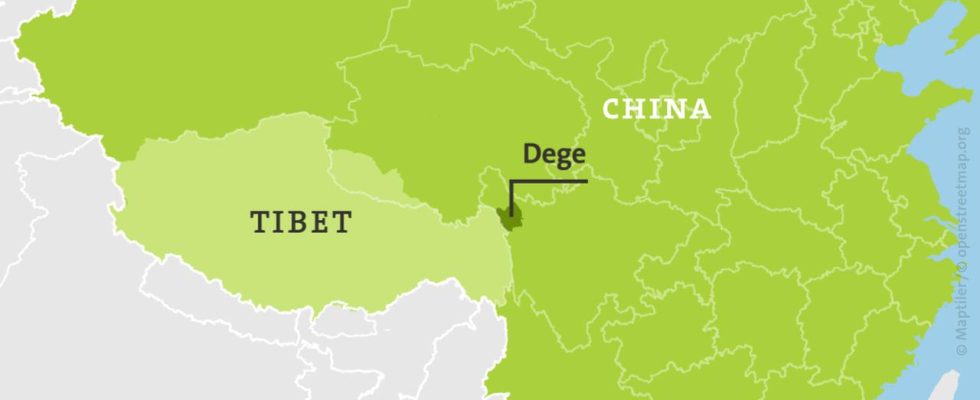According to reports from Radio Free Asia, more than 1,000 people were arrested, interrogated and some beaten following protests in Tibet. The protests are apparently triggered by a planned dam.
Not much information comes through from Tibet. The Chinese police are said to have started large-scale interrogations on Saturday. Some Tibetans are said to have been beaten so badly that they had to receive medical treatment. This is reported by the US-funded broadcaster Radio Free Asia citing multiple local sources.
The broadcaster’s mission is to provide information, particularly from countries with limited press freedom. According to him, there had been protests in the past few days – in Dege, an eastern Tibetan district in the Chinese part of Sichuan, right on the border with Tibet.
Police force monks to the ground
A video received by the radio station shows how Tibetan monks in red robes gather in a square in front of a city hall and are forced to the ground, some by people in civilian clothes and others by police officers in uniform. According to Radio Free Asia, more than 1,000 Tibetans were arrested. Accordingly, they protested against a planned dam by the Chinese government and demanded that the project be stopped. According to the information, two villages and six monasteries would have to be relocated for construction.
Protests like this are rare in China. Because there is no freedom of assembly in the People’s Republic. Particularly in the Tibetan part of the country, which is largely isolated from the outside world, the population is heavily monitored and controlled. Foreign journalists are not allowed to enter Tibet, and the neighboring Tibetan areas in Sichuan are also largely sealed off.
Only a small amount of information leaks out
It is also difficult for human rights organizations to get an idea of the situation on the ground, says Kai Müller from the International Campaign for Tibet organization: “It is extremely difficult to get direct information from Tibet because the Chinese government monitors communication completely , especially abroad or on the Internet.” It is extraordinary that the many videos and images of the protests in Dege and the police actions have even become known, said Müller. Those who published these deliberately put themselves in great danger. “It should be clear that the Chinese authorities will now do everything they can to prevent even more information from leaking out.”
Chinese media only contains information about the dam itself, but not about protests and arrests. According to the Chinese local government in Dege, a city party member visited a village as part of the planned dam almost a week ago. That was a day before Radio Free Asia reported on Tibetan arrests.
This doesn’t mean anything good for the Tibetans now arrested, says human rights activist Müller: “We have to assume that they are in great danger of being tortured and that many of them will have to serve long prison sentences or that some will even remain missing.” Unfortunately, that is the reality in Tibet.
Eva Lamby-Schmitt, ARD Shanghai, tagesschau, February 27, 2024 7:41 a.m

